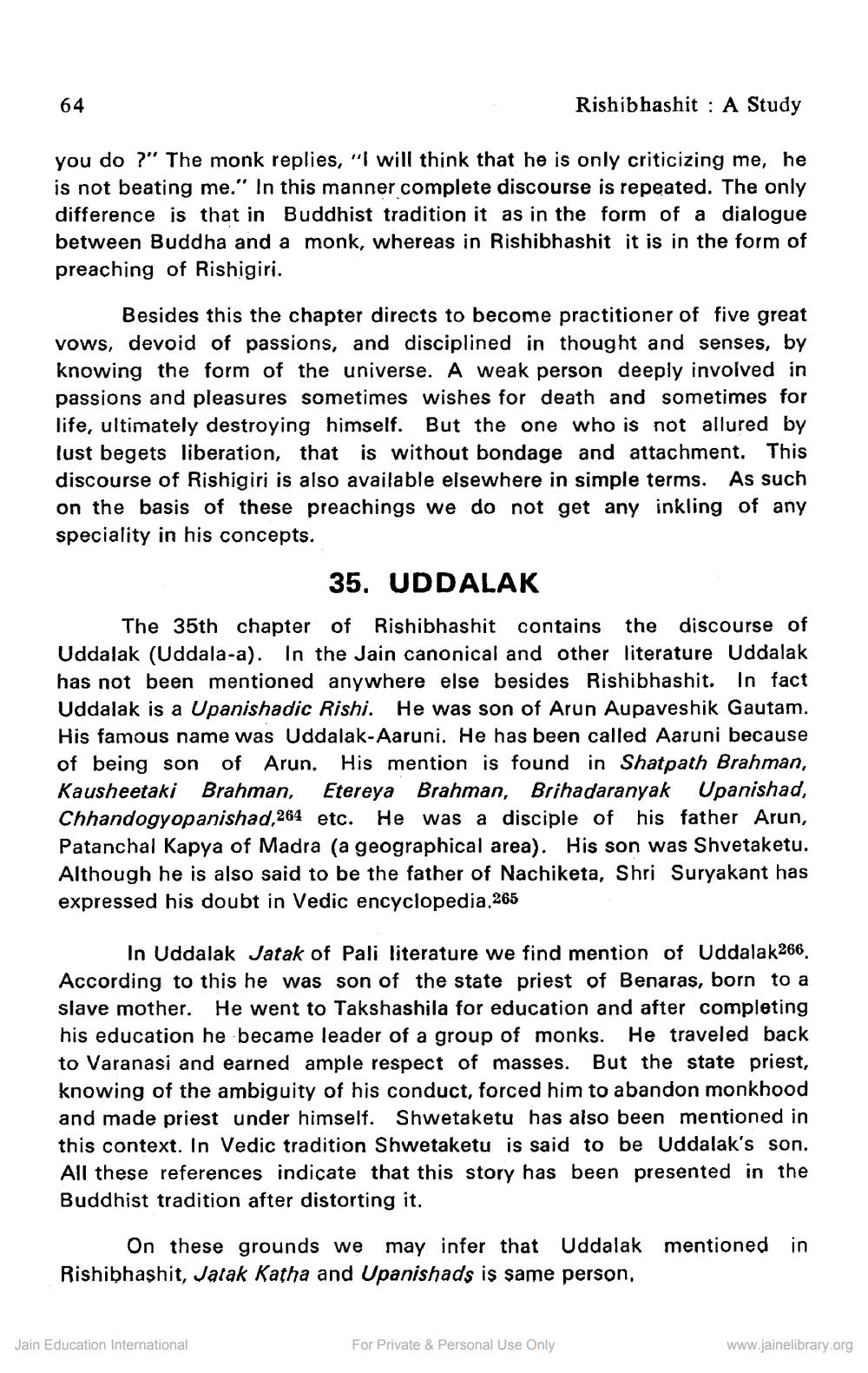________________
64
you do?" The monk replies, "I will think that he is only criticizing me, he is not beating me." In this manner complete discourse is repeated. The only difference is that in Buddhist tradition it as in the form of a dialogue between Buddha and a monk, whereas in Rishibhashit it is in the form of preaching of Rishigiri.
Rishibhashit: A Study
Besides this the chapter directs to become practitioner of five great vows, devoid of passions, and disciplined in thought and senses, by knowing the form of the universe. A weak person deeply involved in passions and pleasures sometimes wishes for death and sometimes for life, ultimately destroying himself. But the one who is not allured by lust begets liberation, that is without bondage and attachment. This discourse of Rishigiri is also available elsewhere in simple terms. As such on the basis of these preachings we do not get any inkling of any speciality in his concepts.
35. UDDALAK
The 35th chapter of Rishibhashit contains the discourse of Uddalak (Uddala-a). In the Jain canonical and other literature Uddalak has not been mentioned anywhere else besides Rishibhashit. In fact Uddalak is a Upanishadic Rishi. He was son of Arun Aupaveshik Gautam. His famous name was Uddalak-Aaruni. He has been called Aaruni because of being son of Arun. His mention is found in Shatpath Brahman, Kausheetaki Brahman, Etereya Brahman, Brihadaranyak Upanishad, Chhandogyopanishad,264 etc. He was a disciple of his father Arun, Patanchal Kapya of Madra (a geographical area). His son was Shvetaketu. Although he is also said to be the father of Nachiketa, Shri Suryakant has expressed his doubt in Vedic encyclopedia.265
In Uddalak Jatak of Pali literature we find mention of Uddalak266. According to this he was son of the state priest of Benaras, born to a slave mother. He went to Takshashila for education and after completing his education he became leader of a group of monks. He traveled back to Varanasi and earned ample respect of masses. But the state priest, knowing of the ambiguity of his conduct, forced him to abandon monkhood and made priest under himself. Shwetaketu has also been mentioned in this context. In Vedic tradition Shwetaketu is said to be Uddalak's son. All these references indicate that this story has been presented in the Buddhist tradition after distorting it.
On these grounds we may infer that Rishibhashit, Jatak Katha and Upanishads is same person,
Jain Education International
For Private & Personal Use Only
Uddalak mentioned in
www.jainelibrary.org




